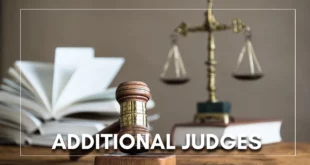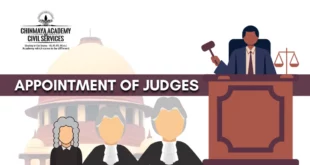- The Supreme Court directed lower courts to decide pending default bail applications without relying on its own recent judgment.
- A judgment of the Supreme Court is considered the law of the land.
- Article 141 of the Constitution provides that the law declared by the Supreme Court shall be binding on all courts within India.
- The recent judgment in Ritu Chhabaria versus Union of India held that the Central agencies cannot deny accused persons their right to default bail by filing multiple supplementary chargesheets and seeking renewed custody.
- The judgment held that the right of default bail under Section 167(2) of the Criminal Procedure Code (CrPC) is not merely a statutory right, but a fundamental right that flows from Article 21 of the Constitution to protect accused persons from the unfettered and arbitrary power of the State.
- According to Section 167(2) of the CrPC, an accused is entitled to default bail if the investigating agency fails to file a final chargesheet within 60 days from the date of remand.
- For certain categories of offences, the stipulated period can be extended to 90 days.
Which law regulates bail in India?
The Code of Criminal Procedure, 1973 regulates the procedural aspects of criminal law, including arrest, investigation and bail.
What is default bail?
- Under Section 167(2) of the Code, a Magistrate can order an accused person to be detained in the custody of the police for 15 days.
- Beyond the police custody period of 15 days, the Magistrate can authorise the detention of the accused person in judicial custody i.e., jail if necessary.
However, the accused cannot be detained for more than:
- ninety days, when an authority is investigating an offence punishable with death, life imprisonment or imprisonment for at least ten years; or
- sixty days, when the authority is investigating any other offence.
In this case, bail is granted because of the default of the investigating agency in not completing the investigation within the specified time, and it is referred to as ‘default bail’ or ‘compulsive bail’.
SOURCE: THE HINDU, THE ECONOMIC TIMES, PIB
 Chinmaya IAS Academy – Current Affairs Chinmaya IAS Academy – Current Affairs
Chinmaya IAS Academy – Current Affairs Chinmaya IAS Academy – Current Affairs



